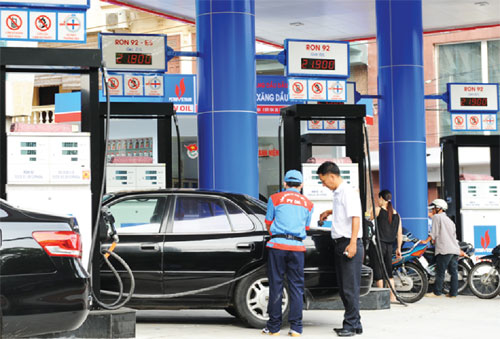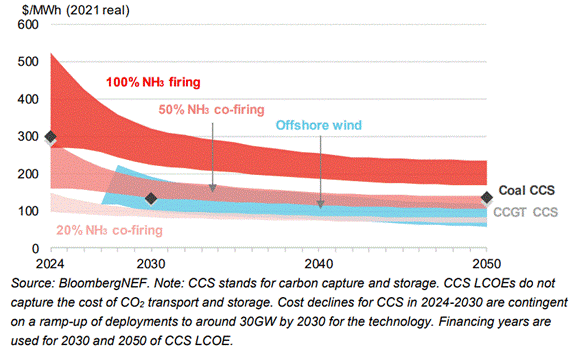Developing bio-fuel industry: Orientations for consumers needed
09:42 | 16/04/2014

Global trend
Ethanol and biodiesel are two popular types of bio-fuels nowadays. Ethanol is used to mix with petrol in varied ratios, including E5 (petrol containing five percent of ethanol), E10 (10 percent), E85 (85 percent) and E100 (100 percent).
According to scientists’ research, ethanol produced from grain can reduce 40 percent of greenhouse gas emissions compared to that produced from petrol and up to 100 percent compared to that from cellulose and sugar cane; biodiesel can reduce 70 percent compared to diesel oil. The contents of other exhaust fumes such as CO, NOx, Sox and hydrocarbons all significantly decrease when using biofuel.
Before the advantages of the biofuel, many countries around the world such as the US, Germany, Brazil, Thailand and the Public of Korea invested in research, production and application of the biofuels to replace oil sources which are at risk of becoming exhausted.
In 2010, the US government approved US$2.3 billion to support green energy sources. According to its plan until 2022, renewable fuels used in the US traffic each year will reach 36 billion gallons (one gallon = 3.785 liters). It is expected that by 2020, half of military equipment on shore and in the sea of the US will run by the biofuels.
In the EU, there are currently 14 countries conducting research and producing biofuels. Specifically, the German government determined that by 2020, renewable energy sources must achieve at least 30 percent of the power consumption ratio; France raised 1.35 billion EUR to support the development of biofuels and renewable energy sources; Finland each year raises 327 million EUR for renewable energy sources and by 2020 will reduce to a minimum of seven million tonnes of CO2 emissions each year into the air.
Currently, Brazil is the country where 90 percent of new cars are equipped with devices for ethanol petrol use. Approximately 25 percent of petrol consumption in Brazil has been replaced by ethanol. Annual ethanol production in the country grows quite large (over 10 percent) and is expected to reach 32-35 billion liters in 2015.
In addition, countries such as India, Japan, the Public of Korea and China have adopted many policies regarding the biofuel issue. India set a target that by 2017 the use of biofuels will reach 20 percent. China also adopted policies with priorities given to diesel use and production from animal fat and vegetable oil. These products will get tax exemption if the amount of oil or fat accounts for no less than 70 percent.
Large biofuel development potential in Vietnam
Vietnam has great potential in the development of biofuels. However, the development and use of this kind of energy remain limited. Every year, Vietnam still exports millions of tons of raw cassava to other countries for producing ethanol. In order to promote the development of the biofuel industry, the prime minister signed Decision 177/2007/QD-TTg approving “the project of developing bio-fuels by 2015 with a vision to 2025”.
Head of the Ministry of Industry and Trade's Science and Technology Department Nguyen Dinh Hiep said Vietnam has successfully carried out research and mixed some kinds of biofuels like E5, E10, E15 and E20 and launched pilot sales at 160 stores nationwide. The biggest advantages of using biofuel are to reduce from 27-44 percent of the gases causing the greenhouse effect and also to save fuels compared with using other ordinary petrol.
According to conclusions of the experts from Hanoi University of Science and Technology and the Center for Technology Application and Transfer under the Vietnam Petroleum Institute, the E5, even E10 and E20 in conventional engines which are popular in Vietnam will not fundamentally affect the vehicle 's features. Using the biofuels even helps motorcycles and automobiles start and speed up better.
In particular, with materials mainly from industrial production, the development of biofuels can stimulate agricultural production and expand markets for agricultural products in the country. Pham Anh Tuan, CEO of Phuong Dong Biofuel Company said if cassava production remains stable, about 300 thousand households or 1.2 million people, most of them living in remote areas and so poor will stabilize their lives.
Lack of information from consumers
Recognizing the importance of biofuel to the energy security issue, PVN has worked out a roadmap to develop biofuel with a target by 2015 with a vision until 2025 to develop biofuels which can ensure energy security, improve the environment and increase incomes for farmers. To accomplish this goal, PVN and Petro Vietnam Oil Corporation have put into operation three projects on producing ethanol biofuels with capacity of 300,000 cu.m per year, including Phu Tho Ethanol Plant (Tam Nong District, Phu Tho Province), Quang Ngai Ethanol Plant (Dung Quat Economic Zone, Quang Ngai Province and Binh Phuoc Ethanol Plant (Bu Dang District, Binh Phuoc Province).
According to PVN, the government has granted permission to build six ethanol plants using cassava chips as raw materials which helped cassava farmers in neighboring provinces stabilize production and lives.
However, finding output markets and orientations for consumers at present remain limited, resulting in difficulties for the government to draw a roadmap for using biofuels across the country. According to experts, the key issue of output markets for biofuels is the distribution systems or coordination between producers and businesses and particularly consumers lack information about the biofuels. To resolve this issue, there only ways are to invest in and develop the distribution systems widely across the country, reduce production costs and raise people’s awareness of the benefits when using the biofuels./.
Source: VEN










